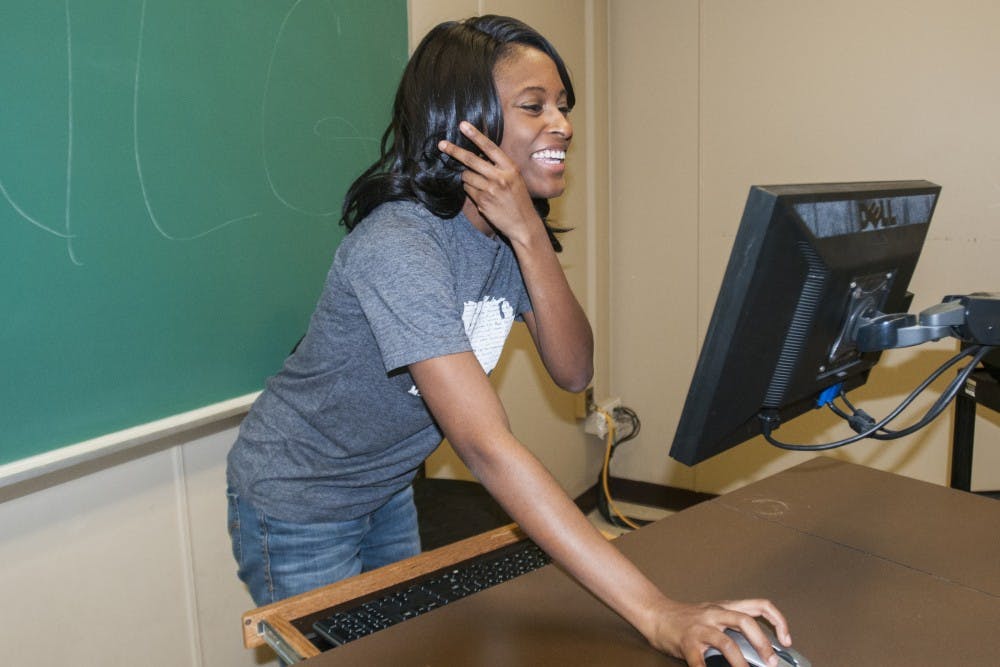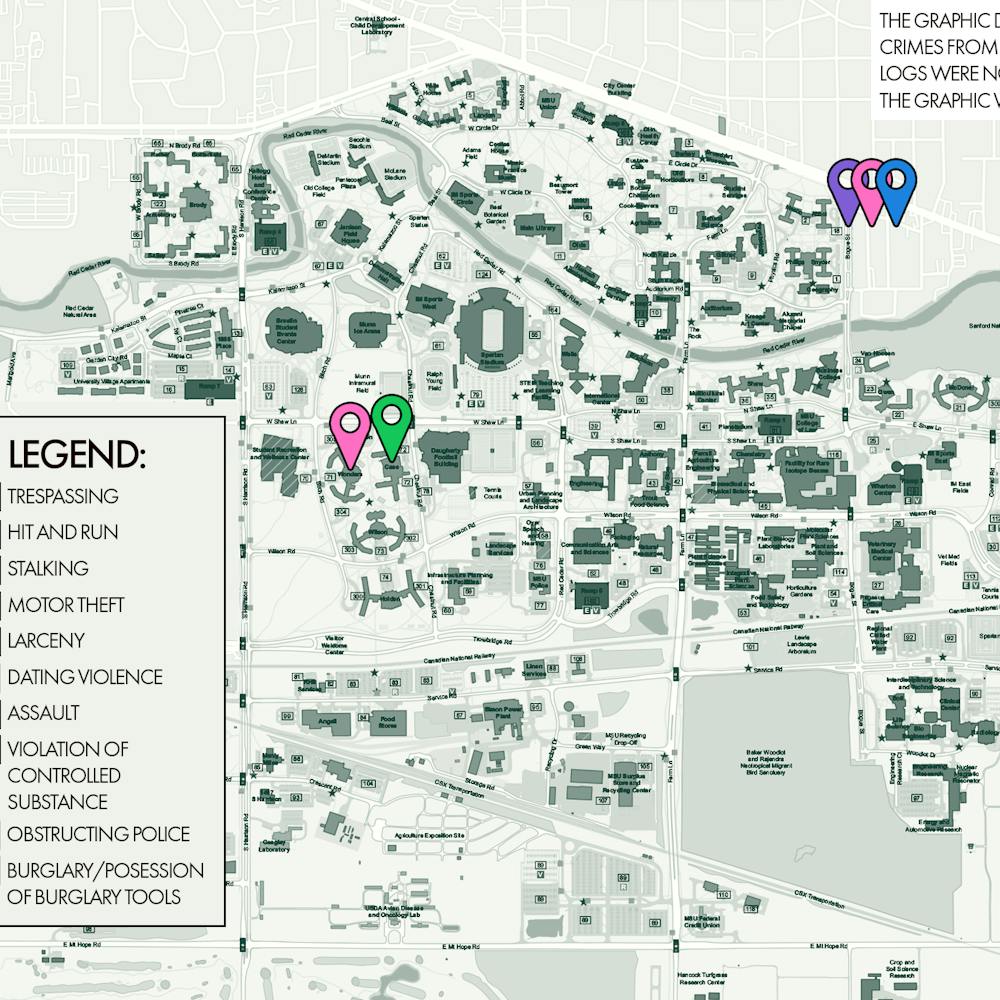Global studies in the arts and humanities senior Kaylah Jetton started the No Lost Generation Initiative in October 2016 in hopes that a group of 15 to 20 people could help the refugee crisis one event at a time.
“We bring education and advocacy to the global refugee crisis at large,” Jetton said. “We want to give a voice and educate students about what’s going on and how they can help.”
Jetton found her passion after she got involved with St. Vincent Catholic Charities, one of the major resettlement agencies in Mid-Michigan.
There, Jetton developed a personal connection with many of the refugees who came to America in search of a better life.
“I met refugees from all walks of life and helped them get a job, helped them find housing, enroll their kids in school,” Jetton said. “Going through the process of picking up the refugees from the airport until the time that they gain self-sufficiency, which means they have a job and things like that. I think, as far as refugees, that is the moment I knew I wanted to do something along these lines.”
Jetton said it can take one and a half to two years for refugees to get acclimated into American life. She said programs like the No Lost Generation Initiative are crucial, especially in today’s political climate.
“There isn’t a word that could honestly describe it, I could say sad, I could say difficult but there is really not a word,” Jetton said. “It is more than devastating to see the people that you helped navigate through American life, and to see them be forcibly be taken away from a country that they trusted in is what’s most disappointing.”
Jetton said she would like to become a foreign service officer and keep working with refugees while traveling abroad.
“The most rewarding part I think is definitely seeing them happy and thriving in a place where they feel safe,” Jetton said. “It has nothing to do with me personally, it is what happens with them.”
Jetton traveled to Japan in the summer of 2015, where she was able to put her Japanese skills to the test. She has been speaking Japanese since she was 5 years old. The 21-year-old encouraged people to study abroad, learn a new language and stay educated on issues with refugees.
“Find a group on campus, join No Lost Generation because you can only learn so much on the internet,” Jetton said. “Learning right now would be the best thing and then finding any campaign on campus that is promoting saving refugees, that is promoting their right to be here, be human and their right to safety.”
Interdisciplinary studies in social science junior Husn Abbasi worked with Jetton in No Lost Generation as the special events director. Abbasi said she joined the group to help people.
“I couldn’t bear that I was just sitting there on social media posting things and not doing anything, so I like this club because it gives an opportunity to actually do stuff,” Abbasi said. “Any groups like this, it is just to help people, you know? We have this privilege and the ability to do these things and we should be going out and helping people with it.”
Neuroscience sophomore Hassan Karim said he joined because of the heightened tensions with refugees and said it is important to be involved.
“If you are trying to help someone, if you have more hands to help them, it gets done faster, also it’s good to spread the word,” Karim said.
Support student media!
Please consider donating to The State News and help fund the future of journalism.
Discussion
Share and discuss “MSU student creates group to help refugees” on social media.







